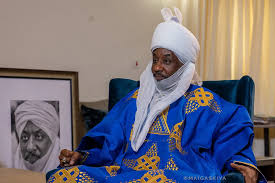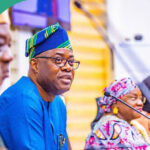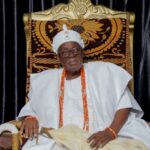Lamido Sanusi Warns Nigeria’s Leadership Disconnect, Will Deepening Poverty

Former Governor of the Central Bank of Nigeria and 14th Emir of Kano, Sanusi Lamido Sanusi, has issued a stark warning about Nigeria’s deteriorating economic and humanitarian conditions, calling on the country’s leadership to reflect on their commitment to the people.
Speaking at a public forum, Sanusi questioned whether Nigerian leaders genuinely care for the people or merely enjoy ruling over them, citing the dire living conditions of millions across the country.
“Do we actually love the people or do we just love ruling over them?” he asked. “You can say you love Nigeria, but what is Nigeria if not the people?”
Sanusi, who has long been an outspoken critic of systemic failure and elite detachment, said his understanding of poverty deepened only after becoming Emir and witnessing first-hand the harsh realities in rural communities.
“In all my years as an economist, banker, and governor of the Central Bank, I dealt with statistics. But I never understood the depth of poverty until I saw it with my own eyes,” he said.
He described visiting villages where people drink unsafe water, live in substandard shelters, and children suffer from acute malnutrition. “When you go to these villages, you see schools that are nothing more than roofless, two-classroom structures without teachers. Then you begin to truly understand what poverty is.”
Sanusi lamented the misplaced priorities of Nigeria’s elite, highlighting the stark contrast between infrastructure developments in urban centres and the complete lack of basic amenities in rural areas. Recounting an interaction with a man from Kogi State during a World Bank town hall, he shared: “The man told the World Bank president that his village has no bridge, and he only made it to Abuja because it was dry season and he could walk through the river. Yet, when he arrived in Abuja, he saw many bridges with no water beneath them.”
Drawing attention to Nigeria’s prolonged economic hardship, Sanusi criticized the country’s indifference to severe inflation. “This is the only country where inflation of 25 or 30 percent is treated like normal weather.
At 18 percent inflation, prices double every four years. We’ve had inflation over 30 percent for years—someone just barely affording two meals a day would have starved to death by now.”
He added that statistical figures on poverty and inflation become meaningless unless tied to real human experiences. “These numbers mean nothing if we do not understand the people they represent.”
Sanusi also condemned the complacency among leaders who warn against a potential crisis, stating that Nigeria is already deep in one.
“For those who say we must act before we reach a crisis—please wake up. We are already there. We are living with banditry, with Boko Haram. What more are we waiting for?”
He concluded with a sobering reminder that unless there is a shift in values and governance priorities, the suffering of Nigerians will persist.
“If we loved the people, they would not be uneducated. They would not be malnourished. They would not die hungry,” he said.
Sanusi, known for his frank assessments, chose to end his remarks early, noting that speaking any further could spark controversial headlines.









